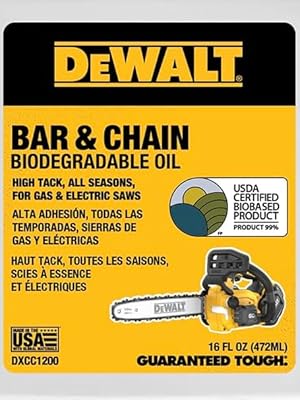Are you tired of using tool oils that harm the environment and leave behind toxic residues? What if you could protect your tools and the planet at the same time?
Eco-friendly tool oil replacements offer a simple, effective way to keep your equipment running smoothly without the guilt. You’ll discover easy swaps that save your tools, your health, and the Earth. Ready to make a change that really matters? Keep reading to find out how.
Benefits Of Eco-friendly Tool Oils
Eco-friendly tool oils are made from natural or renewable materials. They help protect tools while being safe for the earth.
Using these oils supports cleaner air and water. They also offer good protection for your tools over time.
Reduced Environmental Impact
Eco-friendly oils break down faster in nature. They reduce pollution in soil and water.
These oils do not contain harsh chemicals. This helps keep wildlife and plants safe.
- Biodegradable materials lower waste buildup
- Fewer toxic substances released into the environment
- Less harm to ecosystems and biodiversity
Health And Safety Advantages
Eco-friendly oils have fewer harmful fumes. This lowers risks for workers using them.
They cause less skin irritation and allergies. This makes the workplace safer and healthier.
- Lower exposure to toxic chemicals
- Less chance of respiratory problems
- Safer handling and storage requirements
Cost Efficiency Over Time
Eco-friendly oils protect tools well, reducing wear and tear. This means fewer repairs and replacements.
Some eco oils last longer than regular oils. Using them saves money on buying and disposal.
- Less frequent oil changes
- Lower maintenance costs for tools
- Reduced waste disposal fees

Credit: www.vinevida.com
Common Eco-friendly Oil Alternatives
Many tools need oil for smooth use. Some oils can harm nature. Eco-friendly oils protect the environment. They work well and reduce pollution.
People choose eco-friendly oils to keep air, water, and soil clean. These oils come from natural or recycled sources. They break down easier than regular oils.
Plant-based Oils
Plant-based oils come from crops like soy, canola, and sunflower. They are natural and safe for the environment. These oils break down quickly in soil and water.
They work well for many tools and machines. Plant oils reduce toxic waste and help keep ecosystems healthy.
- Made from renewable crops
- Biodegradable in soil and water
- Low toxicity to animals and plants
- Good lubricating properties
Biodegradable Synthetic Oils
Biodegradable synthetic oils are made in labs but break down fast. They last longer than plant oils during use. These oils cause less pollution than normal synthetic oils.
They protect machines well and reduce waste in nature. These oils help keep water clean and soil healthy.
- Engineered to degrade quickly
- Better durability than natural oils
- Less harmful to wildlife
- Used in many industrial tools
Recycled And Re-refined Oils
Recycled oils come from used oil that is cleaned and reused. Re-refined oils go through a special process to remove impurities. Both reduce waste and save resources.
They help lower the demand for new oil. These oils meet safety and performance standards for many tools.
- Collected from used oil sources
- Processed to remove dirt and chemicals
- Cost-effective and eco-friendly
- Supports oil recycling programs
Selecting The Right Sustainable Oil
Choosing an eco-friendly tool oil helps protect the environment. It also keeps your tools working well.
It is important to pick the right sustainable oil for your tools. This ensures good performance and safety.
Compatibility With Tools
Check if the sustainable oil works with your specific tools. Some oils may not suit all materials or parts.
Using the wrong oil can cause damage or reduce tool life. Read tool manuals and oil labels carefully.
- Match oil type with tool manufacturer recommendations
- Avoid oils that react with tool metals or plastics
- Test new oils on small tool parts before full use
Performance Considerations
Eco-friendly oils should protect tools from wear and rust. They must also keep tools running smoothly.
Look for oils that resist high temperatures and reduce friction well. Check how long the oil lasts in use.
- Choose oils with good lubrication properties
- Check oil’s resistance to heat and water
- Consider oils that need less frequent changes
Supplier Certifications
Certified oils meet environmental and quality standards. Certifications show the oil is safe and eco-friendly.
Look for labels from trusted organizations. These prove the oil reduces pollution and uses sustainable ingredients.
- Check for bio-based product certifications
- Look for low toxicity and biodegradability marks
- Choose suppliers with transparent sourcing and testing

Credit: www.amazon.com
Application Techniques For Eco Oils
Eco-friendly tool oils help protect your tools without harming the environment. Using them right keeps tools working well and lasting longer.
Applying eco oils properly means understanding how to store, use, and maintain them. This guide explains key steps to follow.
Proper Storage And Handling
Keep eco oils in a cool, dry place away from sunlight. This keeps the oil fresh and effective for longer.
Always close containers tightly after use. Avoid contamination by using clean tools when applying the oil.
- Store in sealed containers
- Keep away from heat and light
- Use clean applicators each time
- Avoid mixing with other chemicals
Optimal Usage Practices
Apply eco oils in thin, even layers. This prevents waste and ensures the tool is well protected.
Use oil only on clean, dry tools. Dirt or moisture can reduce how well the oil works.
- Clean tools before applying oil
- Apply a small amount evenly
- Allow oil to soak in fully
- Wipe off excess oil gently
Maintenance And Reapplication
Check your tools regularly for dryness or rust. Reapply eco oil as needed to keep tools protected.
Clean tools before reapplying. This helps the oil stick and work better each time.
- Inspect tools often
- Clean before each reapplication
- Apply oil after use or cleaning
- Store tools properly to reduce oil needs
Challenges And Solutions
Eco-friendly tool oil replacements offer a cleaner choice for maintenance. These alternatives reduce environmental harm and improve safety.
Using these oils comes with some challenges. Understanding solutions helps users adopt them smoothly.
Overcoming Performance Concerns
Some worry eco-friendly oils may not protect tools well. These oils must match or exceed traditional oil performance.
Testing and improving formulas help ensure good lubrication and tool life. Users see better results over time.
- Choose oils tested for high pressure and temperature
- Use products with proven anti-wear properties
- Monitor tool condition regularly to adjust use
Addressing Cost Barriers
Eco-friendly oils can cost more upfront. This higher price may stop some buyers from switching.
Saving money on waste disposal and health costs balances the price. Over time, cost benefits become clear.
- Compare total costs, not just purchase price
- Consider reduced health risks and waste fees
- Buy in bulk to lower unit price
Educating Mechanics On Benefits
Many mechanics do not know about eco-friendly oils. Education helps them understand benefits and uses.
Training and clear information boost confidence in these products. Mechanics feel ready to try new oils.
- Offer simple guides on oil use and care
- Share case studies showing positive results
- Provide hands-on workshops or demos

Credit: leafscissors.com
Future Trends In Sustainable Tool Lubricants
Tool oils are important for keeping machines working well. New eco-friendly oils help protect the environment. These oils are made to break down faster and reduce pollution.
Many industries look for safe and green lubricants. The future shows a rise in better, cleaner products. This shift helps reduce waste and saves resources.
Innovations In Bio-lubricants
Bio-lubricants are made from natural oils like plants and seeds. New research improves their strength and heat resistance. These oils work well in tough machines.
Scientists create additives from natural sources to boost performance. These oils break down quickly and do not harm soil or water.
- Use of vegetable oils with better stability
- Natural additives to reduce wear and tear
- Improved biodegradability for safety
Regulatory Changes Driving Adoption
Governments set rules to reduce harmful chemicals in lubricants. These laws push companies to switch to eco-friendly oils. They help lower pollution and health risks.
New standards require clearer labels and safer ingredients. Companies follow these rules to meet customer and legal demands.
- Limits on toxic chemicals in tool oils
- Mandatory biodegradability standards
- Stricter waste disposal requirements
Integration With Circular Economy
Sustainable tool oils fit well with the circular economy model. Used oils are collected, cleaned, and reused to save resources. This process lowers waste and pollution.
Making oils from renewable materials supports recycling and reuse. This approach creates less trash and uses fewer raw materials.
- Recycling and re-refining used tool oils
- Using renewable plant-based raw materials
- Reducing waste through reuse and recovery
Frequently Asked Questions
What Are Eco-friendly Tool Oil Replacements?
Eco-friendly tool oil replacements are sustainable lubricants made from natural or biodegradable materials. They reduce environmental impact and improve safety. These oils protect tools effectively without harmful chemicals. They offer similar performance to traditional oils but with less pollution.
How Do Eco-friendly Oils Benefit Tool Maintenance?
Eco-friendly oils prevent rust and wear while being non-toxic and biodegradable. They extend tool life and reduce environmental harm. These oils often have fewer volatile organic compounds (VOCs), making them safer for users and the environment.
Are Eco-friendly Tool Oils Compatible With All Tools?
Most eco-friendly tool oils work well with various metal and mechanical tools. Always check manufacturer guidelines to ensure compatibility. Using the right oil maintains tool efficiency and prevents damage.
Can Eco-friendly Oils Improve Workplace Safety?
Yes, eco-friendly oils are less toxic and have lower fumes than conventional oils. They reduce health risks for workers and improve air quality. This creates a safer, more comfortable workspace.
Conclusion
Choosing eco-friendly tool oil replacements benefits the environment and your tools. These alternatives reduce pollution and support sustainable practices. Natural oils can extend tool life by providing effective lubrication. Switching to eco-friendly options is simple and impactful. They protect both the user and nature.
Many options exist, suitable for various tools and needs. Using these oils shows commitment to a cleaner planet. Small changes in tool maintenance make a big difference. Let’s contribute to a greener future. Start with your tool oil choice today.
Every step counts toward a healthier world.
9 min read

